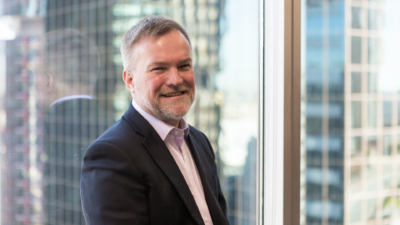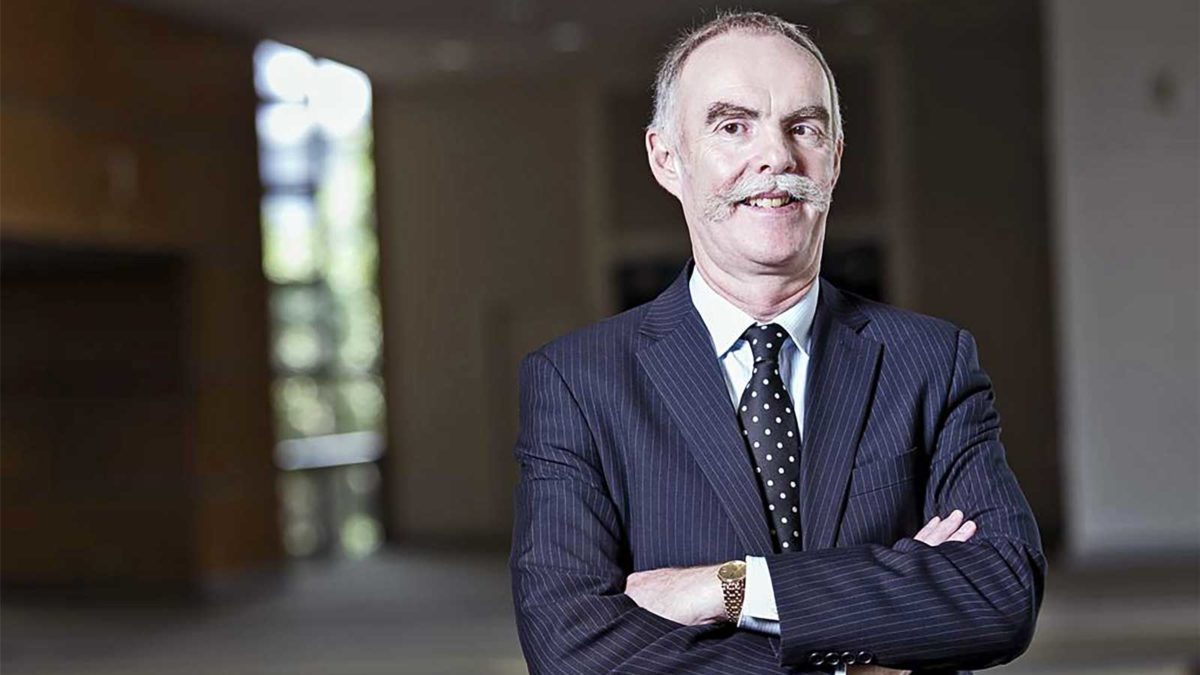Ian Silk’s memorable career, and memorable speeches
Ian Silk, soon to retire from AustralianSuper, was an infrequent speaker on the conference circuit, but his speeches were memorable. Two were very memorable and, as you might expect, prescient.
AustralianSuper announced last week (July 13) that Silk, the first chief executive of AustralianSuper, would retire later this year. He is being replaced by Paul Schroder, currently the fund’s chief risk officer.
The fund, Australia’s largest, with about $225 billion under management and 2.4 million members – including Prime Minister Scott Morrison and Treasurer Josh Frydenberg – was created in 2006. This involved the merger of the Australian Retirement Fund, of which Silk was chief executive, and Superannuation Trust of Australia, of which AustralianSuper’s CIO, Mark Delaney, was chief executive.
It is arguably the most successful merger between two Australian financial services organisations over the past 20-or-more years. It is arguably one which had the longest gestation period, too. It was first discussed around the time that the late Paul Costello became chief executive of STA, in 2000, after Ann Byrne left to run UniSuper. Talks continued, slowly. Costello left in 2003 to become the first chief executive of NZ Super, and later the first at the Future Fund, and Mark Delaney took over the top job at STA.
Two of Silk’s most memorable speeches at industry conferences, one to an ASFA conference in November 2015 and the other to a CMSF conference in March 2019, were peppered with frank criticisms of the industry.
At ASFA in Brisbane he delivered what was called an ‘Industry Oration – A Vision for a Thriving Future’. He said the industry needed to change. “We can, and should, be doing better.”
He said: “It’s simply about two things – our customers, our members, having the best shot we can give them at a comfortable life, and the confidence to take hold of it and enjoy it. So, I propose we as an industry move universally to look at our targets, our measures of success. And when we reward, reward for those two things. If we pay bonuses, pay bonuses based only on those two measures.
“Let’s move our industry so that it’s made up of more and more people who, rather than serve themselves, are proud to serve Australians, and grow Australia. And let’s be honest about what success looks like…”
That conference was the first industry event attended by the new Federal Treasurer of the day, Scott Morrison.
Silk outlined three policy areas to address to help as many people as possible reach the ASFA-estimated comfortable standard in retirement. We needed:
- policies that will generate 12 per cent superannuation savings from the average wage
- policies that address or compensate for broken work patterns, something that has a huge impact on women, and
- policies that encourage people to save for the long term.
“These three simple actions which, when underpinned with confidence and trust, would create a thriving future for millions of Australians,” he said.

At CMSF on the Gold Coast in March 2019 Silk’s keynote speech was delivered at a time when industry funds were the beneficiaries of funds leaving the bank-owned super products following the Royal Commission. It was a time for celebration, wasn’t it?
Silk said: “The fact that industry funds emerged largely unscathed from the Royal Commission is no cause for triumphalism. There is no basis for complacency or hubris whatsoever. Our challenge is fundamental: to be the best we can be for our members.”
Two themes emerged from his presentation at that conference which were to reverberate throughout the three-day event: consistently under-performing funds needed to exit in some fashion; and, an inquiry into SMSFs, particularly whether there should be a minimum balance before people are allowed to start one, should be discussed at government level.
The Government has certainly acted on the first theme – although perhaps not as Silk and others would have liked – but not the second.
He left the audience with a list of eight thoughts for the future:
- Most crucially, there should not be any consistently under-performing funds. They shouldn’t exist.
- Super funds should have well-articulated asset-owner guidelines for the companies they invest in. They need to prove they are responsible owners.
- Be part of a retirement system which address the problem of women getting 40 per cent less than men on retirement.
- Recognise that the purpose of the system is not to “save” but rather to “spend” – in retirement.
- As funds which are governed and managed well grow, they will need more specialist skills at both the board and management level. But member representation needs to be retained as skills are diversified.
- Funds will need the internal expertise and financial resource, or committed partners to provide improved digital services.
- We need a revamped SMSF sector and a full inquiry as to their performance, and
- Fewer self-congratulatory, every player wins a prize, black-tie superannuation awards nights.
Afterwards he told us, at Investor Strategy News, which like other media is a keen supporter of industry awards dinners, that he thought about whether or not to include that eighth point. While we took that as an apology, it probably wasn’t. He most probably thought about each of the eight points, carefully.











